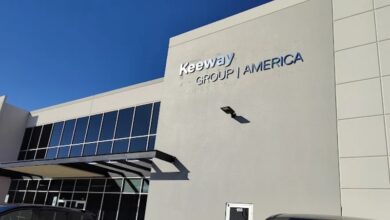Mid-year momentum: Strategic tax and financial planning for powersports dealers
The following article was submitted by contributing writers Brad Stanek and Paulina Matel, and is from the July issue of Powersports Business.
As we find ourselves midway through the year, powersports dealers have a unique opportunity to shift gears from reactive to proactive financial and tax management. The hustle of tax season may have subsided, but the need for strategic planning remains crucial. By engaging in continuous tax and financial planning, dealers can better navigate the complexities of their industry, optimize their financial outcomes, and mitigate unexpected challenges. Being proactive not only enhances your financial stability as a dealer but also positions you to capitalize on other opportunities throughout the year.

Let’s explore how maintaining momentum in your financial and tax strategy can help, as we sit down with Craig Todderud, Tax Partner at Citrin Cooperman.
Legislation potentially affecting dealers in 2025
As we progress through 2025, powersports dealers should be aware of potentially significant legislative changes that could impact their operations. This year, new regulations are being introduced that may affect various aspects of dealership management, from compliance requirements to tax obligations. Dealers must stay informed and prepared for these changes, particularly as more details are expected to emerge later this summer.
Note: This legislation is currently a bill making its way through Congress and has not yet been enacted as law.
Bonus depreciation reinstatement: The One Big Beautiful Bill Act (OBBBA) has reinstated 100% bonus depreciation for property placed in service after Jan. 19, 2025. This reverses the phasedown that was set to end by 2027. Dealers must carefully time asset purchases to maximize this benefit and consider how floor plan interest may disqualify them from bonus depreciation. If floor plan interest exceeds regular business interest, eligibility may be lost.
Increased section 179 expensing limits: The OBBBA has doubled the cap for Section 179 expensing of depreciable business property from $1.25 million to $2.5 million, with a phase-out beginning at $4 million. This change allows dealerships to immediately expense a larger portion of their investments in qualifying property, providing significant tax relief.
Section 163(j) interest limitations: The OBBBA has introduced changes to Section 163(j) business interest limitations. The deduction of non-floor plan interest is currently more restricted. Since 2022, depreciation and amortization are no longer added back when calculating adjusted taxable income. Under the proposed OBBBA legislation, the 163(j) business interest limitations would revert to the pre-2022 calculation and allow for the addback of depreciation and amortization for 2025-2029, when calculating adjusted taxable income. This change would benefit dealers in many situations by increasing the amount of business interest that is deductible.
Cost segregation strategies
If the proposed OBBBA legislation is passed in its current form, the reinstatement of 100% bonus depreciation, increased Section 179 expensing limits, and inclusion of depreciation and amortization to Section 163(j) business interest limitations addbacks to adjusted taxable income, cost segregation studies become even more beneficial for dealership groups that own their real estate facilities.
Cost segregations for dealerships can significantly benefit due to many favorable tax provisions that allow for several portions of the facility that can be allocated as specialty trade assets which qualify for bonus depreciation and/or Section 179. Dealerships investing in property improvements or new facilities will benefit by discussing with CPAs or other tax professionals experienced with dealership industry real estate tax matters to maximize tax savings. Preferably, these discussions should start before real estate is purchased. In some cases, the business tax and ownership structure can be relevant to the deductibility of the cost segregation.
It is also possible to do a cost segregation on a building placed in service in prior years, but in a look-back situation, the depreciation rules revert to the rules in place in the year that real estate was originally placed in service.
Conclusion
As highlighted earlier in our article, powersports dealers are encouraged to adopt a year-round tax and financial planning approach that extends beyond the tax filing deadline. Should you like to learn more on how we help dealer principals, or if you have additional questions, contact us.
Our team offers a complimentary service, the Second Opinion Service, a 360-degree review of your dealership and personal financial situation, aligned to your own stated goals, legacy, and even business transition timeline.
Brad Stanek (brad.stanek@ms.com) is an executive director and financial adviser with The Stanek-Haack Group at Morgan Stanley in Chicago; Paulina Matel (paulina.matel@ms.com) is a financial adviser, also with Stanek-Haack.








